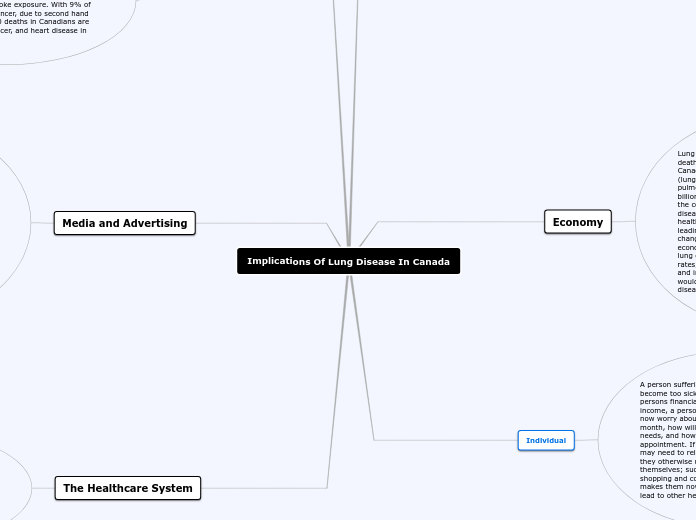по Hannah Gibson 5 лет назад
173
Implications Of Lung Disease In Canada
The prohibition of cigarette advertising in Canada arose due to serious health risks, particularly lung cancer. However, vaping has emerged as a perceived safer alternative, despite its health risks like chronic obstructive pulmonary disease and lung inflammation.









